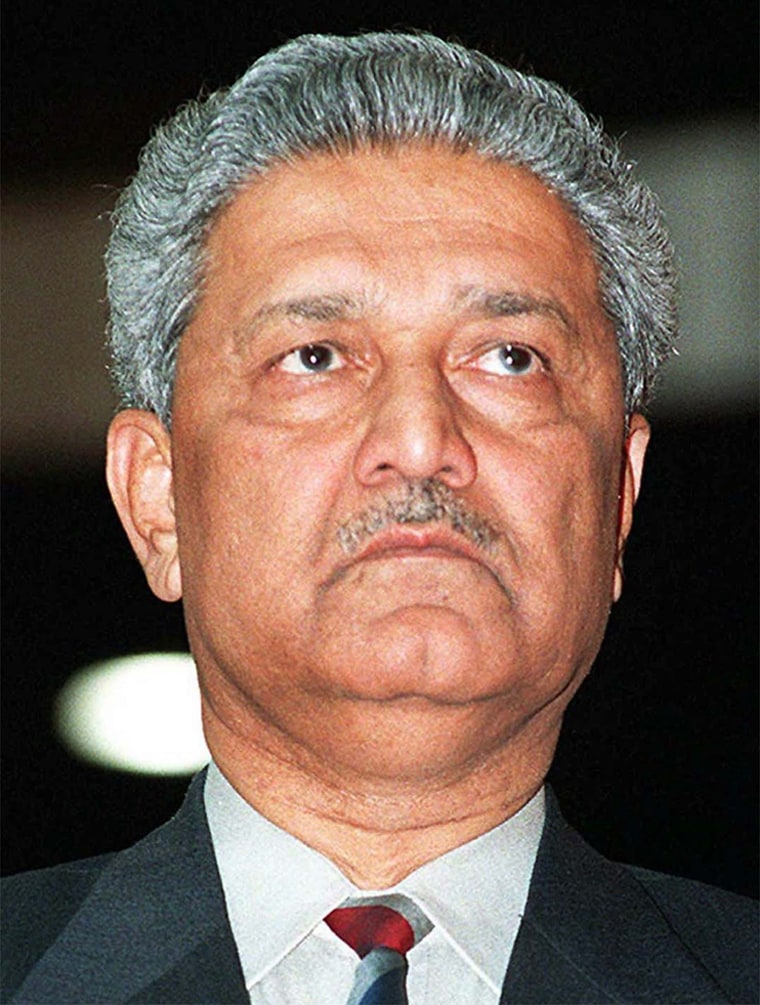Pakistan acknowledged Tuesday that several of its nuclear scientists may have been motivated by “personal ambition and greed” to share sensitive technology with Iran, but insisted the government never authorized the transfer of such information.
Foreign Ministry spokesman Masood Khan said the government is questioning a “very small number” of its scientists over the possibility they spread sensitive technology to Iran.
The questioning, which began five or six weeks ago, was prompted by information from Iran and the International Atomic Energy Agency.
“We had been approached by the IAEA. We had been given some information by the government of Iran. The information that was shared with us pointed to certain individuals and we had to hold the debriefing sessions,” Khan told a news conference.
“There are indications that certain individuals might have been motivated by personal ambition or greed, but let me add we have not made a final determination,” he said. “Let’s not jump to conclusions.”
Khan stressed that the government itself had never been involved in nuclear proliferation. “It takes its responsibility as a nuclear weapons state very seriously,” he said.
“The government of Pakistan has not authorized or initiated any transfers of sensitive nuclear technology or information to other countries,” he said. “This is out of the question.
ALLEGATIONS AGAINST FOUNDER OF ATOMIC PROGRAM
On Monday, the government said that the founder of Pakistan’s nuclear weapons program, Abdul Qadeer Khan, was being questioned in connection with debriefings of other scientists, but was not in custody.
At least two scientists from Khan Research Laboratories, the country’s top nuclear laboratory named after its founder, were held for questioning this month — including Mohammad Farooq, its former director general and aide to Khan, who is still being held.
Recent newspaper reports have suggested that some of Iran’s technology, such as designs for centrifuges used for enriching uranium, may have come from Pakistan.
According to diplomats, the Vienna-based International Atomic Energy Agency has identified Russia, China and Pakistan as probable sources for equipment used by Iran for possible nuclear weapons development.
This month, Iran signed a key accord that gives U.N. experts full access to its nuclear facilities. That followed international pressure on Iran to prove it had not tried to build atomic weapons.
In Washington on Monday, White House press secretary Scott McClellan said that Pakistani President Gen. Pervez Musharraf has assured the United States that his nation is not offering technology related to weapons of mass destruction to Iran or Libya — which has also just agreed to open up to U.N. inspections of its nuclear activities.
“President Musharraf has assured us there are not any transfers of WMD-related technologies or know-how going on in the present time,” he told reporters.
Khan on Tuesday repeated that Pakistan’s government had not authorized the transfer of sensitive technology to other countries, and had a strong “command and control system and a stringent export control regime.”
“Pakistan is responsible. We have taken a proactive approach and we want to get to the bottom of the matter,” he said.
“If there are any individuals who are found involved in transactions of any sort, action would be taken against them. Nobody is above the law,” he said.
Khan Research Laboratories is Pakistan’s main nuclear weapons laboratory where uranium is enriched, according to the Federation of American Scientists.
Pakistan has also been accused of exchanging nuclear know-how with North Korea in return for missiles. Musharraf said last month that his country obtained short-range missiles and technology from North Korea, but denied giving any nuclear weapons secrets in return.
